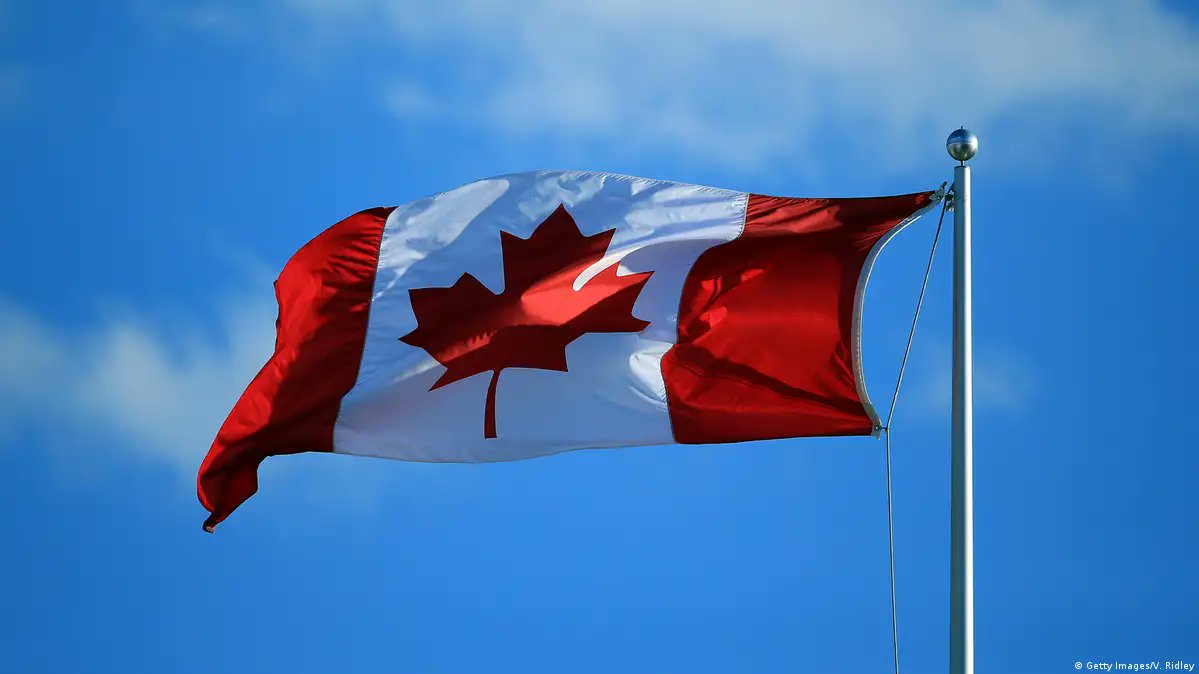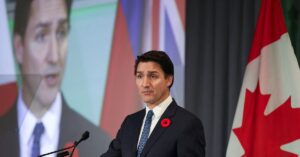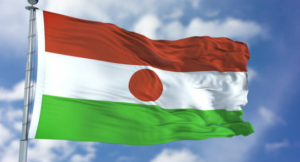
A Russian anti-war activist is facing the prospect of deportation from Canada after her citizenship application was blocked on the grounds that her blogposts had broken Moscow’s harsh laws criminalizing criticism of the invasion of Ukraine.
The decision, first reported by the CBC, which has baffled immigration lawyers, faults Maria Kartasheva over criminal charges leveled by Russian prosecutors, even though her dissent mirrors Canada’s foreign policy.
Kartasheva, founder of the Russian Canadian democratic alliance, fled her homeland in 2019 amid concern over Vladimir Putin’s growing crackdown on dissent . In 2022, and living in Ottawa, she learned that two of her blogposts about a massacre in the Ukrainian town of Bucha by Russian troops had caught the attention of officials in Moscow.
She was charged in absentia with disseminating “deliberately false information” about Russia forces. She was convicted and sentenced to eight years in jail.
“I’m being punished for writing what Canada believes is the truth about Russia’s actions,” she told the Guardian.
Since Russia’s invasion in 2022, Canada has been a vocal supporter of Ukraine, pledging billions in aid and hosting President Volodymyr Zelenskiy. Justin Trudeau’s government has been deeply critical of the Russian state, sanctioning many officials – including the judge who oversaw Kartasheva’s arrest in absentia
Kartasheva, who had applied for citizenship, notified Canadian officials about the conviction. Under Canadian immigration law, if an applicant is charged with a crime in another country that has an equivalent under Canada’s criminal code, the application can be refused.
Still, she was sent an invitation to her virtual citizenship ceremony. Moments before the ceremony, largely as a formality, applicants are asked if they have been criminally charged.
“I figured they were familiar with my case because I had sent all of the documentation, and the explanation [was] that the law was a political one used to persecute those who speak out against the government,” she said. “So I said I had been charged and convicted in Russia.”
Kartasheva was then told by officials her answer meant could not attend the ceremony. She was left “heartbroken” but was able to watch her husband receive his citizenship.
In December, Canadian officials told her in a letter that her conviction in Russia aligns with a criminal code offence relating to spreading false information. A case officer cited subsection 372(1) of the criminal code, which prohibits people from “convey[ing] information that they know is false, or causes such information to be conveyed by letter or any means of telecommunication”.
The rarely-used 1985 statute carries a maximum sentence of two years behind bars.
“Based on the information currently available to me, it appears that you may be subject to prohibitions under the Citizenship Act,” the letter said.
Kartasheva’s application appears to be caught in a seemingly absurd administrative tangle, with one lawyer telling the Guardian the case was “evidence of a bureaucracy doing what a bureaucracy will do: send things up the chain”.
Another expert, the University of Toronto law professor Audrey Macklin, said the case appeared the result of an “over-zealous” citizenship officer and questioned the decision to pull her during the ceremony.
“The individual has already been approved for citizenship and they had the information about this in-absentia conviction before scheduling her for the ceremony,” she wrote in an email.
As a result of the decision, Kartasheva says she worries she could face the risk of deportation back to Russia. “I know the odds are low, but so many things have gone wrong. How could I not worry that I might be deported?”
She has since asked immigration officials to determine if the Russian law, which explicitly prohibits “public dissemination of deliberately false information about the use of the armed forces of the Russian Federation” does in fact have an analogous Canadian statute.
“This feels like a surreal comedy, one in which everything goes wrong. But the problem is this is my life,” she said.
The Conservative MP Tom Kmiec said confusion over Kartasheva’s case was “stupid” and should be fixed quickly.
“There is no law in Canada that says you cannot criticize our military, can’t criticize politicians, can’t criticize our government – that’s part of living in a democracy,” Kmiec told the Canadian Press.
Canada’s immigration department said it had previously “carefully examined” Kartasheva’s case.
“Individuals involved would be offered an opportunity to explain what transpired and provide any other information related to the charge or conviction, and the officer would take that information into account when making their decision. IRCC is committed to upholding the integrity of all our immigration and citizenship programs,” department said. “Until a final determination is made, cases are subject to review.”
The office of immigration minister Marc Miller said it would not comment on specific cases.
Kartasheva said: “I’m troubled, because there’s no transparency to any of this. I’ve sent them everything I can, but I don’t even know if they’re read it. Do they care? Or will I end up in prison because of bureaucracy?”
Here in the UK, the prime minister, Rishi Sunak, had promised us a government of stability and competence – not forgetting professionalism, integrity and accountability – after the rollercoaster ride of Boris Johnson and Liz Truss. Remember Liz? These days she seems like a long forgotten comedy act. Instead, Sunak took us even further through the looking-glass into the Conservative psychodrama.
Elsewhere, the picture has been no better. In the US, Donald Trump is now many people’s favourite to become president again. In Ukraine, the war has dragged on with no end in sight. The danger of the rest of the world getting battle fatigue and losing interest all too apparent. Then there is the war in the Middle East and not forgetting the climate crisis.






